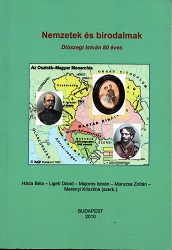
We kindly inform you that, as long as the subject affiliation of our 300.000+ articles is in progress, you might get unsufficient or no results on your third level or second level search. In this case, please broaden your search criteria.



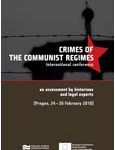
For six centuries the Slovenian lands had been the part of the Austro-Hungarian Empire, which disintegrated aft er the WWI. According to the will of the Paris Peace Conference and the world super powers the majority of the Slovenian lands in 1918 entered the first Yugoslavia. Th e western part belonged to Italy and the west-northern part belonged to Austria. During the WWI in Slovenia (1941–1945) there were occupation, resistance, revolution, collaboration and the civil war. After the Axis attack on Yugoslavia on 6 April 1941, Slovenia was occupied by Italy, Germany and Hungary. After the Italian capitulation in September 1943, Germany added the Italian Slovenian territory into the Operational Zone Adriatic Littoral. After the German occupation of Hungary, the Third Reich occupied the whole of Slovenia. All three occupying countries had the same goal: to Italianize, Germanize and Hungarize the Slovenians and assimilate the occupied territories.
More...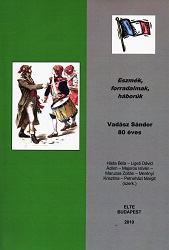
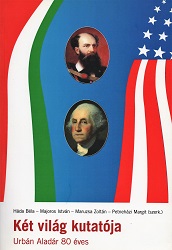

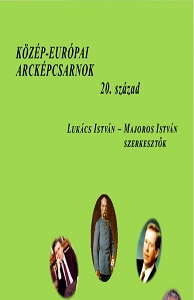
The purpose of this study is to examine the political career of Edvard Kocbek (1904–1981), the internationally recognised Slovene writer, poet, Christian Socialist thinker and politician. Kocbek became well known in 1937, after publishing a long article about the Spanish Civil War, in which he raised his voice against the fact that the main Slovenian party and the Church leadership supported Francisco Franco. In World War II he and his Christian Socialists cooperated with the communists in the Liberation Front and Kocbek has received high ranking positions after the war, but as a Christian, he had no place in the new regime and was forced to resigne. After a decade, he could publish his literary works again. In the afternoon of his life, he raised a particularly unpleasant question for the regime regarding the massacres committed by the Yugoslav Communists after World War II, which was a taboo subject till then.
More...
This paper focuses on a person being both a scientist and a politician who played a key role in socialist Hungary in the initiation of the opening towards the West. Ferenc Erdei (1910–1971) started his career as a soci-ologist in the early 1930s and was mainly involved in politics after 1945. Following the revolution in 1956, he drew back from his active political role. He established the Research Institute of Agricultural Economics of the Hungarian Academy of Sciences which became the the most import-ant background institution of the Agrarian Lobby. My paper argues that the experience Erdei gained from his study trips in Western Europe in the 1930s served later as a basis for the „bridge-building” between the socialist East and the capitalist West. In my paper I investigate which western countries Erdei launched the opening towards and through which channels he started to build a network as well as the political and professional debates that followed this process.
More...
Life, later destiny, political and public work of Dr. Ágost Benárd, minister of welfare and labor and Alfréd Drasche–Lázár, extraordinary ambassa-dor and authorized minister, who were the signatories of the Peace Trea-ty of Trianon, on 4th June 1920 were beyond the scope of examination of the researchers and historians in the recent time. Present study is aiming to fill this gap, with presenting the two signatories’ political and public ca-reer. It covers their education, role in the First World War and their work between the two wars. It definitely refutes the allegations that Dr. Ágos Benárd and Alfréd Drasche–Lázár were weightless politicians who were willing to leave politics and who were voluntarily signatories of the peace treaty. By contrast, the study describes both politicians’ work after the signing of the peace treaty, and proves with persuasive arguments that they were two honest gentlemen, who were suffering of and said to be victims of the events, they were the formers of the 20th Century Central Europe.
More...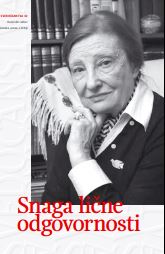
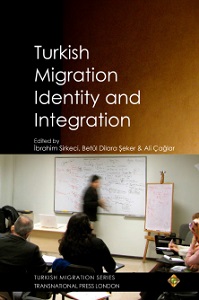
Germany’s Turkish communities have long been at the centre of vibrant political, academic and public deliberations. During the guest-worker years and the family reunification period that followed, and throughout their emergence as fixed attributes on German cities’ landscapes, Turks secured a firm place in debates in a Germany that was a reluctant and hesitant country of immigration. In recent years, they have been the prime focus of discussions and reflections on integration, citizenship, multiculturalism, segregation, social cohesion and the place of Islam in Germany. On the whole, the history of Turkish migration to and subsequent settlement in Germany during the post-1960s era has conventionally been associated with economic exploitation and hardship, residential difficulties and segregation, educational underachievement, confusion, uncertainty, shortsighted political strategies and ad hoc social provisions (Herbert, 1986; Abadan-Unat, 2011). Turks have gradually come to be perceived as the ethnic minority group least likely to achieve integration into German society, and as recognizable and clear Ausländer.
More...
People referred to as Turkish immigrants in Britain are comprised of Turks, Kurds emanating from the borders of the Turkish Republic and Turkish Cypriots. Turkish Cypriots migration to Britain started in the 1940s following the World War II and increased throughout the 1960s (Ladbury 1977; Robins & Aksoy 2001). Turkish migration from mainland Turkey to Britain started in the early 1970s (Mehmet Ali 2001; Issa 2005). Ethnic Kurds from Turkey began to immigrate in larger numbers during the late 1980s and early 1990s, often seeking refuge and asylum status (Robins & Aksoy 2001; Atay 2006). These increasing waves of migration have resulted in a significant social and cultural presence within British society (Çoştu, 2013a).
More...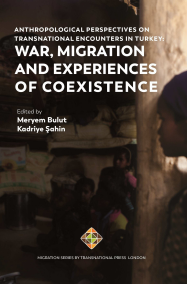
The destructive effects of the Second World War, which resulted in great loss and suffering in the not so distant past, still has an important place in the lives of countless people living in different geographical locations. German families constitute a population whose members witnessed the bitter outcomes of the war in no small measure. War-related memories of families have been handed down from generation to generation up to the present day. Despite many of the generation who actually lived through the war preferring to erase the traces of it from their day to day lives, their children and even their grandchildren have taken on board this memory (Koçyiğit, 2016).
More...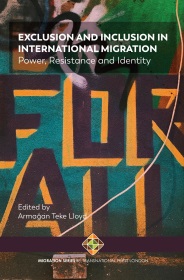
Human mobility is the human face of globalization, the cement that links human communities across the globe and a highly relevant political issue increasingly controversial in many societies in the face of mounting pressures. The main drivers behind human mobility across and within borders are related to the three Ds, Demography and demographic gaps; Development failures and poverty; Democratic and governance failure associated with human rights violations. Moreover, mobility is both a consequence and a cause of human insecurity. On the one hand it is a response to a deregulated globalization that produces increasing inequality and human insecurity but, on the other, mobility itself is increasingly associated with higher levels of human insecurity in the absence of a robust system of international protection.
More...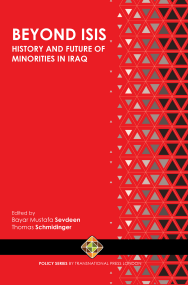
Describing the Jewish communities in the multi-religious history of Iraq can only take place from a historical perspective, simply because they no longer exist. Apart from a few individuals, there is no future perspective at this point in time.
More...
The Karaites are one of the religious communities erased from the memory of Iraq. Today hardly anybody in Iraq remembers this centuries-old religious community rooted in the Abrahamic faith of Islam, Christianity and mainstream Judaism. Multiple marginalisations resulted in nobody ever telling the story of the last Karaites in Iraq. The isolated and rural community in the town of Hīt in Anbar did not have any intellectuals to document their history. Later, Karaite Jews became a minority among the rabbinic Jews in Israel and the Iraqi Karaites were even a tiny minority within the minority of the Karaites of Israel. Without anyone interested in their history, even the second generation in Israel did not think that the stories of their parents and grandparents would be worth recording and telling.
More...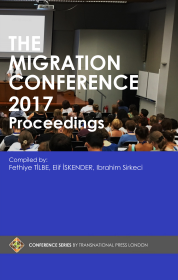
European Turks have experienced a tough adaptation process in their host countries because of the coming back to their homeland possibility has considerably decreased. Although acquiring citizenship in the host countries has several achievements legally, they came across problems such as a crisis of religious and national identity, conflicts of generations and cultures, and alienation. Turkish immigrants have established a number of community organizations and solidarity networks within the framework of the legal rights granted to them by the host country, primarily to provide services in various areas. One of the organizations that has been founded by European Turks are mostly mosque based organizations. The most important part of these organizations founded especially by Turkish immigrants who are close or sympathisers to religious groups and movements in Turkey or connected with them. These organizations were very similar to religious groups and movement in Turkey and in time they have become institutive for fulfilling differentiated demands of immigrant communities. Because of their active role in the everyday religious life of European Turks analysing those civil religious organizations and the religious and cultural life around it is so valuable.
More...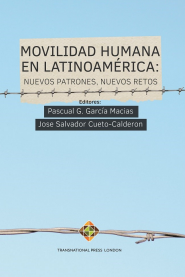
La política migratoria que surgió a partir de la culminación de manera unilateral del Programa Bracero, propició nuevas ideologías antiinmigrante y con ello, nuevas reformas políticas por las que se vieron respaldadas; dicha política se agudizó con la construcción del muro fronterizo, el poder que se otorgó a la Patrulla Fronteriza y las interminables leyes estatales en contra de la población inmigrante. Estas leyes abarcaban temas respecto al trabajo, educación y seguridad social, que contribuyen al crecimiento del conservadurismo blanco estadounidense. Como consecuencia del flujo constante de inmigrantes mexicanos en Estados Unidos, en especial los irregulares, los lineamientos migratorios se tornan hacia el nacionalismo xenofóbico.
More...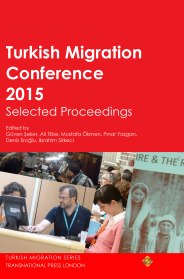
As a country being a stage for a variety of migratory movements for many years, Turkey, until recently, did not have a comprehensive migration and asylum policy which takes into account of the realities of those movements and responds accordingly. The need for such policy has brought with it the efforts to develop a migration regime of which the new Law on Foreigners and International Protection (LFIP) is an essential element. The factors which played a role in the growing need for a migration and asylum policy are the increasing number of irregular migrants in the country and the deterioration of the Syrian refugee crisis. The lack of a comprehensive migration and asylum policy has loomed large when the country is a stage for mass migration movements.
More...